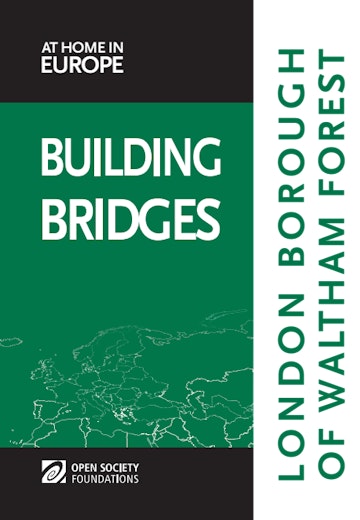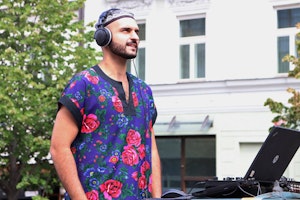Diverse Communities Embrace Multiculturalism with Surprising Ease
By Harris Beider
The last 15 years have not been easy for those who seek to promote multiculturalism in Britain. Events like the September 11 attacks in New York, the July 2005 attacks on mass transit in London, military action by allied forces in Iraq and Afghanistan, the conflict in Syria, and the rise of the Islamic State have shaped both local and national policies. Policymakers have framed immigration as having an adverse impact on local services and British identity. And the extreme right has gained a foothold within the British National Party and the United Kingdom Independence Party.
Given all this, one might imagine that one of London’s most multicultural communities, the borough of Waltham Forest, would be the site of a “clash of civilizations,” as white working class residents and British Muslim residents are pitted head to head. But a report by the Open Society Foundations, Building Bridges, finds that the reality on the ground is far different. In Waltham Forest, residents of all stripes live happily among each other, building bridges between their communities and finding value in their diversity.
The report provides a detailed and extensive exploration of the nature of relationships between the white working class and British Muslim communities in Waltham Forest. Building on earlier research into Muslims in London and Europe’s white working classes, we conducted interviews with 78 residents of the district, 31 of whom described themselves as white working class and 47 as British Muslims, the latter being mostly of ethnic Pakistani origin.
Both communities have been unduly generalized by the British media and politicians: white working class communities are portrayed as enthusiastic supporters of the extreme right, while British Muslims are stereotyped as Islamic extremist sympathizers who refuse to assimilate.
Despite the media narrative that these communities are in constant conflict with each other, however, our research found that they shared several common bonds. Specifically, both groups feel disconnected from their national government, reject the conflict rhetoric, and view the reality of multiculturalism as the norm and something to be celebrated.
Our research indicated that there is a gap between national debates and local reality. The lived experiences of diversity are at odds with the way successive governments have problematized the debates on immigration and identity. Rather than a symbol of conflict and failure, multiculturalism is normal in the London borough of Waltham Forest. People live side by side, attend the same schools, share the same shopping experiences, and enjoy the same public realm.
Multiculturalism is not a politically correct model imposed on an unsuspecting and hostile British public, but a practical framework used by many people to make sense of change in their neighborhoods. This is not to say that multiculturalism is without its frictions. People from different communities expressed concerns about the impact of migration on housing, jobs, and services. But these concerns were balanced by an appreciation of difference.
This study has shown that people living in Waltham Forest both understand and appreciate the normalcy and challenges posed by multiculturalism. They are more progressive than national politicians who purport to represent their views. That is the gap between rhetoric and reality.
Harris Beider is a professor of community cohesion at the Centre for Trust, Peace, and Social Relations at Coventry University.


